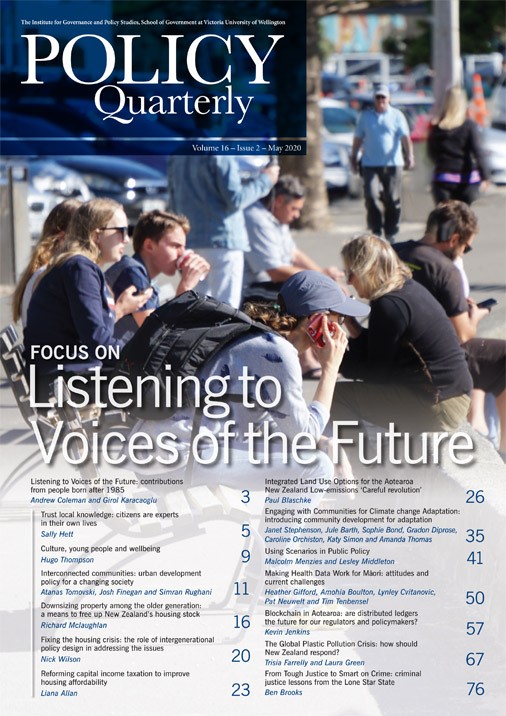Reforming capital income taxation to improve housing affordability
DOI:
https://doi.org/10.26686/pq.v16i2.6478Abstract
New Zealand’s distortionary tax environment for housing imposes large costs on young people. Since 1989, New Zealand has taxed owner-occupied housing more lightly than other forms of capital income. In contrast, retirement savings have been taxed heavily. This combination has created a bias towards owner-occupied housing, encouraging homeowners to live in higher quality properties than they would under a neutral tax system, and bid up the price of land located near desirable amenities.
While existing, often older homeowners have enjoyed high land and house values, our generation has faced artificially inflated house prices. Distortionary capital income taxation has contributed to New Zealand’s housing affordability crisis.
Downloads
Downloads
Published
Issue
Section
License
Permission: In the interest of promoting debate and wider dissemination, the IGPS encourages use of all or part of the articles appearing in PQ, where there is no element of commercial gain. Appropriate acknowledgement of both author and source should be made in all cases. Please direct requests for permission to reprint articles from this publication to Policy-Quarterly@vuw.ac.nz.



